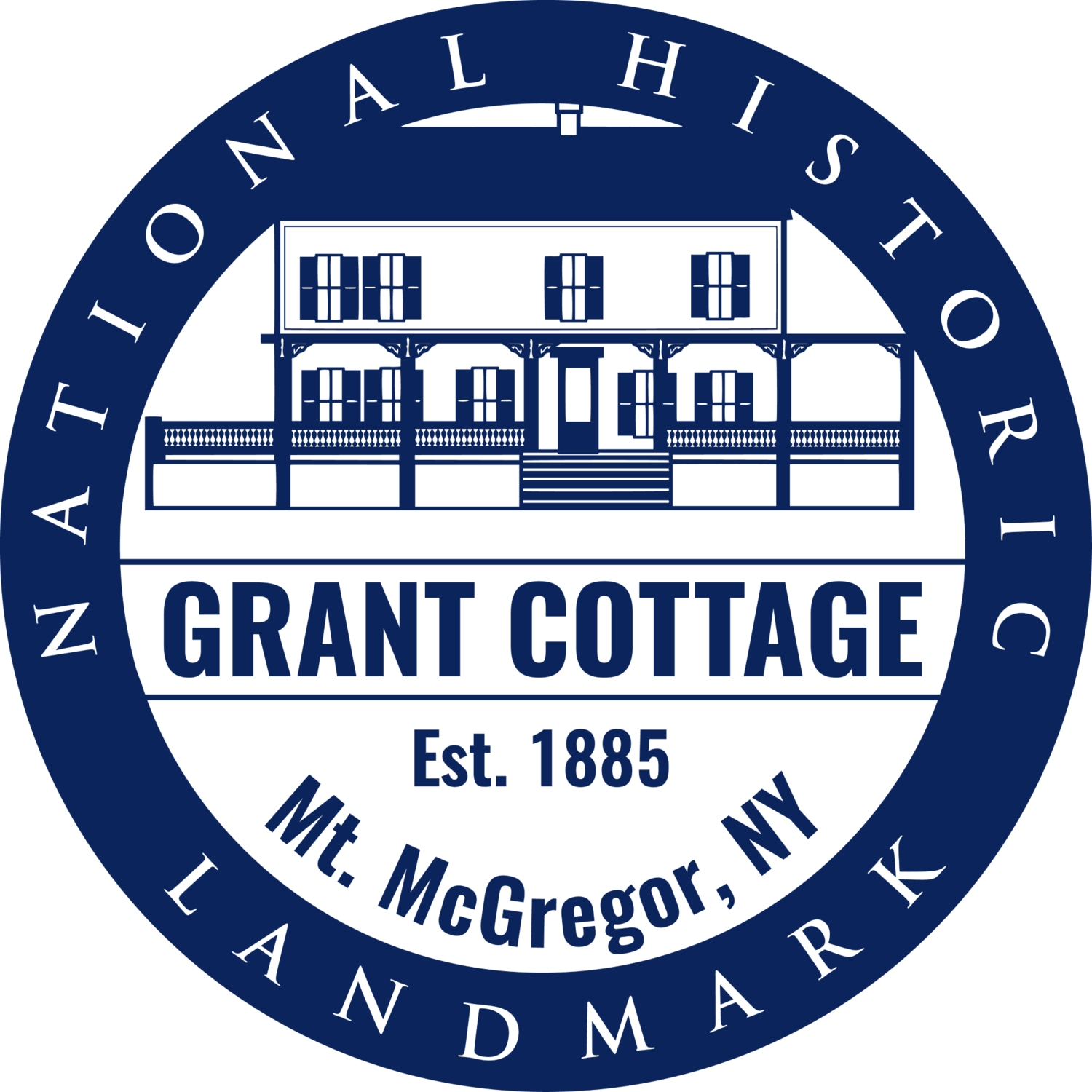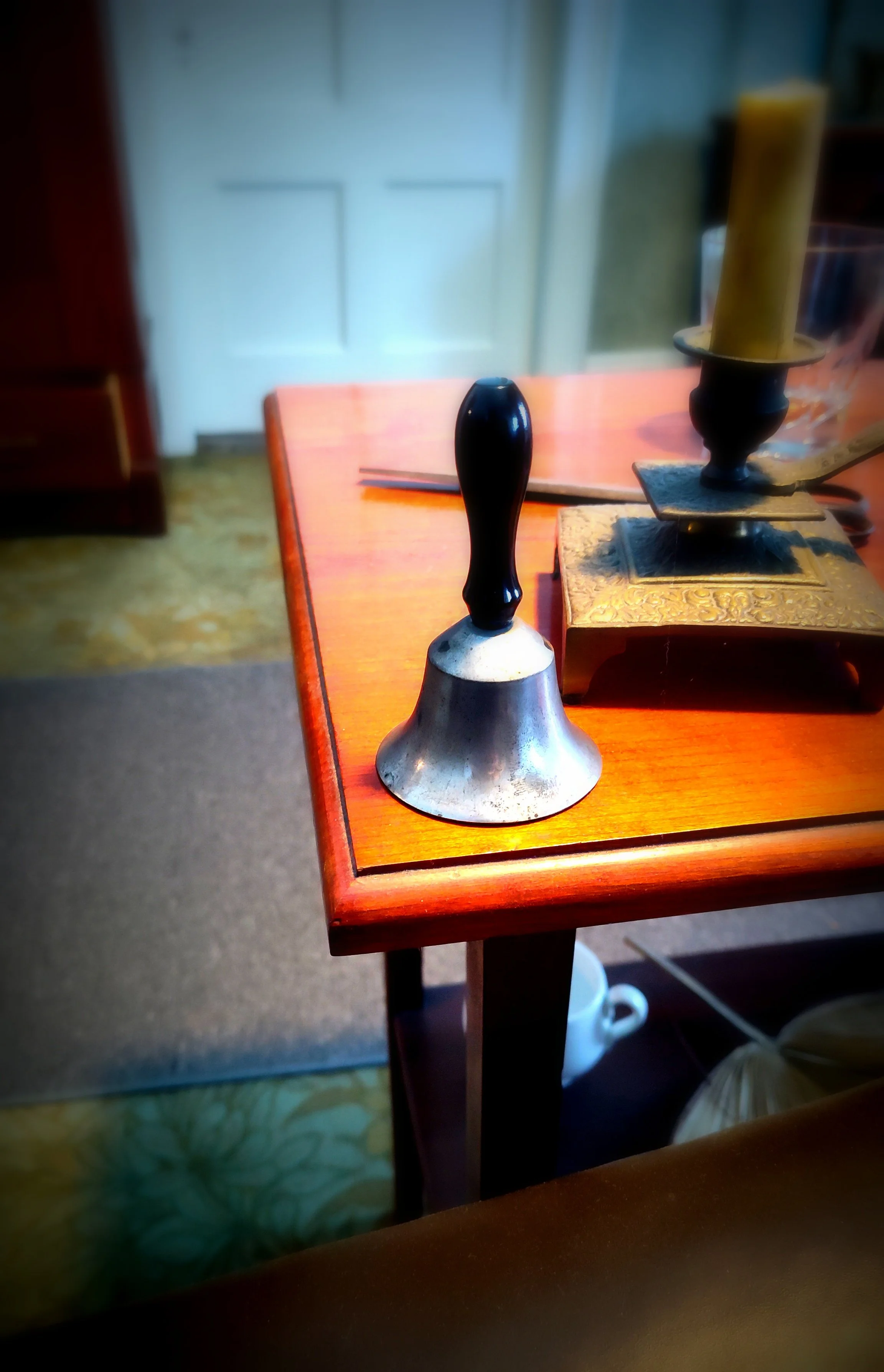Bedside Angels
by Ben Kemp, Operations Manager
National Nurses Week provides a good opportunity to highlight a couple of individuals who helped care for General Grant during his final months. It was in the fall of 1884 that Grant went to throat specialist Dr. John Douglas and received the news of his potentially fatal malady of throat and tongue cancer. With the progression of the disease it was not long before Grant’s health had declined to the point where he required regular assistance in his everyday activities.
The first to answer the call was someone who was already part of the Grant household, their African-American valet Harrison Terrell. Although not officially trained in nursing, Harrison, having developed into a close trusting relationship with the General, took on the task. Helping him dress, bathe and eat were just some of the daily chores for Harrison.
As Grant grew weaker, he eventually needed round-the-clock care. For this, a nurse named Henry McQueeney (his name is mis-spelled McSweeney in various accounts) was brought in to assist Harrison in caring for the General. To differentiate the two, Henry was referred to by the press as the “white nurse,” while Harrison received the prefix “faithful.” In April of 1885, The New York Evening Post described Henry’s involvement:
“Henry, the white nurse, had nearly sole care of the General last night. The members of the family got a good night's rest, and the doctors who remained in the house during the night were also able to get a little sleep…The nurse… had charge of the sleeping patient. Henry is a professional nurse who was introduced to the General some time ago… He showed such skill in his work that the General became much attached to him, and has retained him to attend to his personal wants. Henry said this morning that the General had a good night's rest, and awoke this morning bright and cheerful. He talked with him for some time and seemed to be in very good spirits.”
Perhaps Grant enjoyed his nurse’s brogue as Henry was an Irish immigrant. He was born in the small lakeside village of Drumcong in County Leitrim, Ireland, during the Great Famine in 1846. Henry was employed as a weaver, and significant changes to his trade brought on by industrialization are what likely forced him to consider an entirely new path.
Henry, his wife Ellen, and their two sons, John & Henry, sailed to the United States in the late 1870's settling in New York City. By 1880, Henry, employed as a waiter, was living in the predominantly Irish-Catholic enclave of Greenwich Village. In early 1885, as U.S. Grant's health began declining, Henry was brought on as a nurse to help with his care.
From all accounts, these two men provided the General with dedicated care. They saw the worst of what he had to endure and were those closest to him in the most trying of moments. Grant expressed his gratitude for those that cared for him in the following letter to his doctor…
“I am thankful for the providential extension of my life to enable me to continue my work…see for myself the happy harmony…between those engaged but a few short years ago in deadly conflict…to hear the kind expression towards me…from all parts of the country…They have brought joy to my heart if they have not effected a cure. To you and your colleagues I acknowledge my indebtedness for having brought me through the “valley of the shadow of death” to enable me to witness these things.”
Harrison is pictured standing behind his patient in this image from the porch of Grant Cottage in 1885.
He wrote “faithful” Harrison the following letter of recommendation:
“I give this letter to you now, not knowing what the near future may bring to a person in my condition of health. This is an acknowledgement of your faithful services to me during my sickness up to this time, and which I expect will continue to the end. This is also to state further that for about four years you have lived with me, coming first as a butler, in which capacity you served until my illness became so serious as to require the constant attention of a nurse, and that in both capacities I have had abundant reason to be satisfied with your attention, integrity and efficiency. I hope that you may never want for a place.
Yours,
U.S. Grant”
Henry and Harrison would travel with their patient to the cottage on Mount McGregor in the spring of 1885. Like many immigrants, Henry had to take what work was available, even if it meant time away from family, but perhaps he also enjoyed getting out of the city and looking off the mountain overlook at a pastoral scene similar to his youth.
Grant displayed his witty humor and playful relationship he shared with Harrison one day on Mt. McGregor as Harrison was pulling the General to the Hotel Balmoral in a bath wagon wheelchair. Harrison under the burden made reference to feeling like a draught horse, to which Grant scribbled on paper the response “For a man who has been accustomed to drive fast horses this is a considerable come down in point of speed.” Harrison played along replying that at least the slower speed was safer, to which the General wrote “My horse will not run away uphill.” They enjoyed a laugh together. Grant would also playfully write a note stating that “If Henry can get me in bed… he has me just where he wants me.”
The bell Grant used to summon his caregivers.
Harrison and Henry shared quarters within the Drexel Cottage in the room adjacent to Grant’s bedroom so that they would always be near. A bell was provided for the General to ring for assistance. Harrison continued to take the day shift as Henry took the night shift, together with the physicians, providing Grant 24-hour care in his final days.
Henry (standing) looks after his patient in his waning hours.
Harrison and Henry were both attending to their patient to the end. Henry responded to the General’s final request when he uttered “water” by wetting a towel to place on his lips for relief. Soon after this they both watched as their patient and friend breathed his last on the morning of July 23, 1885.
After his patient had passed, Henry helped the eldest Grant grandchild Julia, then nine years of age, construct an oak leaf wreath. The wreath was placed on the General’s breast and accompanied his remains to his tomb, a symbol of the love of his family and also the bond between patient and caregiver.
The short time Henry had with the General had impressed him deeply as he returned to the cottage annually for many years. Cottage caretaker Martha Clarke later remembered that:
“General Grant’s nurse, Henry [McQueeney] McSweeny came [to the cottage] several times during our earlier years here and always spent his whole time between trains in [the] cottage and Mr. Clarke had long talks with him about General Grant’s life here. Henry [McQueeney] McSweeny was a tall, fine looking, well poised man and was without question very fond of General Grant. He told of the intense suffering of General Grant in his last illness and showed much feeling himself, although it had been at least five years after the General’s death before we saw his nurse. We saw him several times as he came year after year.”
Harrison Terrell poses with his patient’s favorite chair at Mt. McGregor in 1885.
Sadly, Henry would only outlive his patient by about 10 years, dying at the age of 49. Grant's oldest son, Fred, would go on to become a police commissioner in New York City in the 1890s and helped Henry's son, John, start a career on the police force. John's younger brother, Henry, would also join the force, contributing to their adopted nation with integrity just as their father had done before them.
Harrison, who had started life in slavery in Virginia, used his letter of recommendation to work in Washington, DC. He lived long enough to watch his son Robert become the first African-American Justice of the Peace in Washington, DC, before eventually losing his life to a tragic fall in 1906.
Nurses are individuals who put the needs of others before themselves, something Grant was known for and appreciated in others. It’s important to recognize the vital role that nurses play in all our lives, working in relative obscurity but playing a crucial part in some of the toughest times of our lives.








